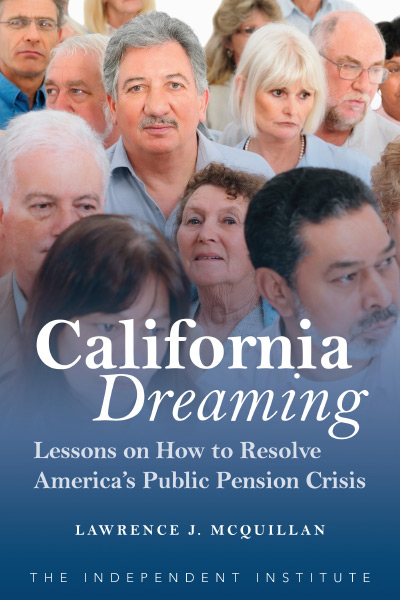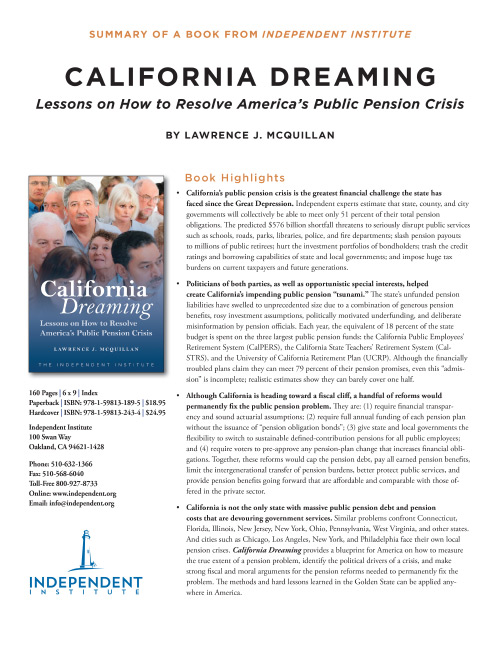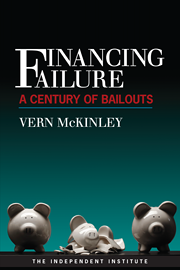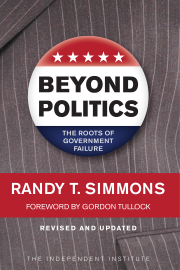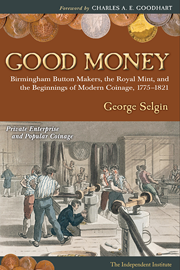Overview
A politically created crisis of epic proportions is brewing in California and elsewhere across the United States. For decades, public pension officials and politicians of both parties have promised their employees increasingly generous retirement benefits—while low-balling the contributions from government agencies and employees that are needed to cover these promises—presenting our greatest financial challenge since the Great Depression.
Pushing the pension liability from today and onto our children and grandchildren leaves them with a depleted future and a potentially bankrupt California.
- State and local governments will scramble to find funds, forcing them to raise taxes, slash public services, and/or declare bankruptcy.
- Schools, parks, emergency services, and public-employee retirement benefits will be at risk.
- Politicians will defer until circumstances force them to reckon with a disaster of their own making.
The problem? For far too long, state and local governments have promised their employees increasingly generous retirement benefits—but without ensuring that sufficient funds will be on hand when the pension payments come due.
In California Dreaming, Lawrence J. McQuillan pulls back the curtains covering this unfunded liability crisis. He describes the true extent of the problem, explains the critical factors that are driving public pension debt sky-high, and exposes the perverse incentives of lawmakers and pension officials that reward them for not fixing the problem and letting it escalate. Finally, he offers the six crucial reforms needed to restore the financial health of California and other threatened jurisdictions.
If California Dreaming’s roadmap for reform is adopted, the prospects for achieving a thriving, balanced and equitable future are highly favorable in California and any state or municipality facing its own public pension problem. If not, the many opportunities that once made the Golden State seem like a Promised Land will quickly evaporate.
Contents
Acknowledgements
Introduction
SECTION I: The Problems
1 How Are Defined-Benefit Pensions Calculated?SECTION II: The Solutions
2 How Are Pension Funds Amassed?
3 California’s Massive Public Pension Unfunded Liabilities
4 What Are the Major Drivers of the Pension Problem?
5 Why Did Lawmakers Allow This Problem to Worsen and Why Have They Not Solved It?
6 The Immorality of California’s Public Pension Crisis
7 Why Offer Pensions at All?SECTION III: How a Comprehensive Public Pension Solution Benefits You
8 The Critical Elements of a Comprehensive Solution
9 The Fiscal AdvantagesIndex
10 The Moral Advantages
About the Author
Detailed Summary
- California’s public pension crisis is the greatest financial challenge the state has faced since the Great Depression. Independent experts estimate that state, county, and city governments will collectively be able to meet only 51 percent of their total pension obligations. The predicted $576 billion shortfall threatens to seriously disrupt public services such as schools, roads, parks, libraries, police, and fire departments; slash pension payouts to millions of public retirees; hurt the investment portfolios of bondholders; trash the credit ratings and borrowing capabilities of state and local governments; and impose huge tax burdens on current taxpayers and future generations.
- Politicians of both parties, as well as opportunistic special interests, helped create California’s impending public pension “tsunami.” The state’s unfunded pension liabilities have swelled to unprecedented size due to a combination of generous pension benefits, rosy investment assumptions, politically motivated underfunding, and deliberate misinformation by pension officials. Each year, the equivalent of 18 percent of the state budget is spent on the three largest public pension funds: the California Public Employees’ Retirement System (CalPERS), the California State Teachers’ Retirement System (Cal- STRS), and the University of California Retirement Plan (UCRP). Although the financially troubled plans claim they can meet 79 percent of their pension promises, even this “admission” is incomplete; realistic estimates show they can barely cover one half.
- Although California is heading toward a fiscal cliff , a handful of reforms would permanently fix the public pension problem. They are: (1) require financial transparency and sound actuarial assumptions; (2) require full annual funding of each pension plan without the issuance of “pension obligation bonds”; (3) give state and local governments the flexibility to switch to sustainable defined-contribution pensions for all public employees; and (4) require voters to pre-approve any pension-plan change that increases financial obligations. Together, these reforms would cap the pension debt, pay all earned pension benefits, limit the intergenerational transfer of pension burdens, better protect public services, and provide pension benefits going forward that are aff ordable and comparable with those offered in the private sector.
- California is not the only state with massive public pension debt and pension costs that are devouring government services. Similar problems confront Connecticut, Florida, Illinois, New Jersey, New York, Ohio, Pennsylvania, West Virginia, and other states. And cities such as Chicago, Los Angeles, New York, and Philadelphia face their own local pension crises. California Dreaming provides a blueprint for America on how to measure the true extent of a pension problem, identify the political drivers of a crisis, and make strong fiscal and moral arguments for the pension reforms needed to permanently fix the problem. The methods and hard lessons learned in the Golden State can be applied anywhere in America.
A crisis of epic proportions is brewing in California and elsewhere in the United States, a politically created crisis that threatens to inflict harm on countless residents and retirees: a drastic shortfall between public pension promises and the assets needed to make good on those promises.
Public pension plans are supposed to be financed by contributions from government agencies and their employees, with those funds invested in profitable assets that enable the plans to pay the promised benefits for 20, 30, or 40 years after the employees retire. In California, however, pension officials and politicians of both political parties deliberately lowballed the contributions and increased the promised benefits to such an extent that the plans won’t be able to cover all of their pension liabilities. When the day of reckoning comes, taxpayers will be on the hook to make up the diff erence between pension promises and pension assets.
In California Dreaming: Lessons on How to Resolve America’s Public Pension Crisis, economist Lawrence J. McQuillan (Senior Fellow, The Independent Institute) pulls back the curtains covering the unfunded liability disaster. After describing the true extent of the problem, McQuillan focuses on the critical policy actions that drove California’s public pension debt sky-high. He also examines a more fundamental problem: the perverse incentives of lawmakers and pension officials that reward them for not fixing the problem and letting it escalate. Finally, he examines the immorality of the crisis, the crucial reforms needed to fix the problem, and the long-term benefits of a permanent solution.
If reformers heed the analysis and proposals presented in California Dreaming, the prospects for achieving a balanced and equitable resolution are favorable, in California and in any state or municipality struggling with its own public pension problem. If not, many opportunities that once made the Golden State seem like a Promised Land will quickly evaporate.
California’s Public Pension Crisis
California has 86 defined-benefit public pension plans with about 4 million members, or roughly 11 percent of the state’s population. Its state and local government employees receive defined-benefit pensions that guarantee specific monthly payments to retirees for life. The monthly checks are calculated based on final compensation, age at retirement, the number of years of service, and any cost-ofliving adjustments.
State and local government public pension plans say they need $158 billion more in assets today to make good on their pension promises. According to McQuillan, however, official measures of funding status are seriously flawed, and correct assessments reveal that California’s public pension systems are in much worse health than officially reported. When measured correctly, unfunded public pension liabilities in the state are nearly four times as large as official government estimates, reaching a staggering $576 billion or nearly $15,000 per Californian.
McQuillan examines the history of California’s Big Three public pension plans and identifies the critical policy actions that drove the pension debt sky-high. The history lesson shows that the unfunded liabilities are selfinfl icted, and not primarily due to the Great Recession. Most of the critical drivers of the crisis were set in motion long before 2008. Poor public governance, not macroeconomic troubles, drove the severe financial problems.
Four variables aff ect the health of any defined-benefit pension plan: (1) employer contribution amounts, (2) employee contribution amounts, (3) investment returns, and (4) promised benefits. McQuillan shows that in each area, reckless decisions by politicians and pension officials drove unfunded liabilities to unsustainable levels, and macroeconomic developments amplified the poor decisions.
The critical drivers include: funding pension systems below the annually required levels; providing contribution holidays and pension pickups; increasing the riskiness of investment portfolios over time; setting unrealistically high actuarial rates of return and discount rates; underestimating the life expectancy of pensioners; miscalculating government workers’ retirement dates; giving more-generous benefits through formula enhancements, COLAs, and “skimming”; lowering the minimum age of retirement; allowing retroactive application of more generous benefit formulas; and unleashing bidding among government agencies using pension benefits to lure new employees.
According to a leading study, California state workers receive government pensions about 30 percent larger than their privatesector counterparts.
Why Lawmakers Have Failed to Solve the Problem
McQuillan explains that perverse incentives of lawmakers and pension officials encourage unfunded liabilities to escalate over time. These harmful incentives exist in any jurisdiction with public governance of defined-benefit pension plans.
Elected officials know pension recipients and their families are more likely to vote for them if they increase pension benefits. Lawmakers seek votes and campaign contributions by pandering to special interests with higher pension benefits. Also, many voters and taxpayers are happy to receive public services without paying the full cost, meaning the cost that includes the public employee pension costs.
Pensions are particularly well suited for vote buying because the full costs of higher pensions are not realized initially—the pension tsunami takes years, if not decades, to swell. Lawmakers can make pension promises today, and the full cost is pushed into the future, usually after the legislators have left office.
California lawmakers also promised generous pension benefits, but contributed little money up front because they assumed the contributions would earn a high rate of return for decades when invested. The Big Three assume that they will outperform the average portfolio return in the twentieth century by 21 percent every year forever. This risky approach frees up money to be spent on other programs, but it is a collapsing house of cards when reality does not match the politically motivated rosy assumptions.
McQuillan shows that both Democrats and Republicans played the pension game because, ironically, these reckless decisions advanced politicians’ short-term interests. Perverse incentives motivate politicians to blow a hole in defined-benefit pension plans.
The Immorality of the Public Pension Crisis
McQuillan explains that the failure to fully fund the pension promises has allowed the current generation to receive public services that they did not fully pay for, pushing the pension problem onto future generations. This approach to pension funding produces massive intergenerational inequity, treating our children and grandchildren as piggy banks.
The unwillingness to confront the true scope of California’s pension costs, to pay for the promises made, and to make changes to control future obligations means these costs are pushed onto our children and grandchildren who are forced to pay for promises they did not make and for services they did not agree to. The injustice is apparent to anyone who cares to see.
Future generations will have to forego government services that their parents and grandparents enjoyed, such as police and fire protection, library services, and education, in order to pay for past pension promises they didn’t consent to. This “service-delivery insolvency” is as real as financial insolvency. Skyrocketing public pension costs are crowding out spending on other public services.
Left unchanged, the financial burden of the pension problem will crush our children and grandchildren, leaving them with a depleted future and a depleted California. The responsibility to fix this problem is as great as any moral imperative because it directly impacts the quality of life our children will enjoy and their chances for upward mobility.
A Comprehensive Solution
A true solution to California’s public pension crisis must do two things: (1) shore up California’s current public pension plans, and (2) ensure that California never repeats this crisis. McQuillan offers six reforms that would solve California’s pension problem in an equitable, responsible, and moral way by preserving pension benefits already earned; allowing governments, if they choose, to provide competitive defined-contribution pensions going forward to all employees; and granting governments the flexibility needed, so that future generations are not paying for deals they did not make. These reforms could be applied anywhere in America facing a similar problem.
The specific recommendations—most of them already in place in the private sector— would require financial transparency and full annual funding of each pension plan without issuing “pension obligation bonds.” Also, the reforms would give state and local governments the flexibility to switch to sustainable 401(k)-style defined-contribution pension plans going forward for all government employees. Voters would also be required to pre-approve any pension plan change that increases financial obligations.
These reforms are the crucial elements of a comprehensive solution. They would stop the problem from getting worse, fully fund the pension plans without severe hardships on future generations, and guarantee that the crisis is never repeated.
How a Comprehensive Solution Benefits You
The reforms presented in California Dreaming would provide significant fiscal benefits for consumers of government services, public employees and retirees, taxpayers, voters, legislators, younger people, and poorer people.
For example, McQuillan shows that by freezing the Big Three’s defined-benefit plans and switching to defined-contribution plans, California could save at least $6 billion a year, which would pay for the closure of the defined-benefit plans over about 30 years, if the government’s actuarial scenario proves to be correct. The $6 billion annual savings would make a significant contribution toward paying down past pension debt (in other words, paying for all earned pension benefits) while capping the debt, limiting the intergenerational transfer of burdens, better protecting public services, and providing pension benefits going forward that are competitive with those offered in the private sector. Once the pension debt is paid, the tremendous savings could be redirected to restoring public services, such as education, police and fire protection, libraries, and roads and bridges, or it could be refunded to taxpayers for their own retirement savings. Without the reforms, pension burdens will be crushing, growing, and repeatable.
McQuillan also explains that current and future government retirees, in particular, would be wise to accept the recommended reforms because the changes would fully pay for accrued benefits and decouple future retirement benefits from government treasuries, which are increasingly teetering on bankruptcy or already insolvent. Recent federal bankruptcy court decisions in both the Detroit and Stockton municipal bankruptcies ruled that pension checks of current and future city retirees may be cut in bankruptcy proceedings. Both cities were driven into bankruptcy by unaffordable pension obligations. Defined-contribution pensions would untether retirement security from the future financial health of municipal governments.
Praise
“Mayors, governors, and other policymakers around the country are struggling to maintain services while paying for the skyrocketing costs of public employee retirement benefits. California Dreaming explains why it is so difficult to solve this problem and identifies a key framework for solutions.”
—Chuck Reed, former Mayor, City of San Jose, California
“Lawrence McQuillan's California Dreaming is a superb, wake-up call to all those depending on generous pensions from state and local governments—they simply won't be there, or at least in the amounts expected. The book is also a wake-up call to California taxpayers—who will be shocked to learn of the huge tax liabilities they face. McQuillan explains how governments have created this mess and offers sensible reforms to end the crisis and preserve retirement benefits—without bankrupting taxpayers.”
—James C. Miller III, former Director, U.S. Office of Management and Budget; former Chairman, Federal Trade Commission; former Executive Director, Presidential Task Force on Regulatory Relief
“California Dreaming is a horrifying must-read that exposes the steal-as-you-go policies driving the state (and our country) straight down the tubes!”
—Laurence J. Kotlikoff, William Fairfield Warren Distinguished Professor and Professor of Economics, Boston University; former Senior Economist, President’s Council of Economic Advisers
“Unfunded public pensions and healthcare are the greatest threats to government financial stability in our country. Over 80% of the government bodies in California are headed for bankruptcy for owing more than a half trillion dollars in unfunded pension and healthcare debt. Mounting debt will force the closing of public libraries, parks, and schools. Police and fire services will be cut, streets will be in disrepair, and we will find ourselves living in a Third World country. Lawrence McQuillan’s outstanding book California Dreaming spells out these disasters about to happen with perfect clarity.”
—Richard J. Riordan, former Mayor, City of Los Angeles, California
“California Dreaming is as important as an early warning of an impending tsunami. Ignoring its message would be equally irresponsible. Underfunding fixed pension benefits for California employees with an inadequate portfolio of risky assets will eventually fail catastrophically. Almost everyone, particularly future taxpayers, will suffer. As with a tsunami warning, quick action offers the opportunity of minimizing the damage from current policies. Lawrence McQuillen offers a thoughtful menu of policy reforms which would improve the situation dramatically.”
—John B. Shoven, Charles R. Schwab Professor of Economics and Trione Director of the Stanford Institute of Economic Policy Research, Stanford University
“Politicians must learn not to make retirement finding decisions for city and state employees and not be able to fulfill them. It is unfair to current and future employees as well as the general public to carry the financial burden of past, unrealistic, unfunded liabilities. California Dreaming is the right book at the perfect time to explain the issues and suggest a realistic approach. The public needs to hold politicians much more accountable or suffer the financial consequences.”
—Frank M. Jordan, former Mayor and former Chief of Police, City and County of San Francisco, California
“California, the canary in the coalmine for practically all of America’s states, faces an enormous and largely unacknowledged crisis in its system of pensions for teachers and other public employees. In California Dreaming, Lawrence J. McQuillan writes that those pensions ‘are like tapeworms in the guts of public treasuries.’ The result is a shortfall of more than half a trillion dollars. The good news, though, is that McQuillan has the answer—a handful of reforms to fix California’s pension problem permanently, and a lesson for the rest of the states in this very important, timely, and well-researched book.”
—James K. Glassman, Visiting Fellow, American Enterprise Institute; Member, SEC Investor Advisory Committee; former U.S. Under Secretary of State for Public Diplomacy; former Publisher, The New Republic; former President, The Atlantic Monthly
“California’s policymakers are living in Fantasy Land, as they downplay the depth of the state’s pension crisis. In California Dreaming, Lawrence McQuillan does a remarkable service explaining why the public pension systems are broken. He then offers sensible solutions for fixing them, and all California officials should listen. This is a great book for anyone who wants to understand an issue that unless averted will erode public services, destroy budgets and bankrupt our future.”
—Steven M. Greenhut, columnist, U-T San Diego
“In California Dreaming, Lawrence McQuillan does a great job of clearly explaining how the mismanagement of California’s state pension plans has led to massive unfunded pension liabilities. McQuillan offers sensible policy reforms to address California's pension crisis, and explains why all Californians would benefit from those reforms. Unfunded pension liabilities plague many states, and this book offers the clearest explanation on how the problem arises and how it can best be addressed.”
—Randall G. Holcombe, DeVoe Moore Professor of Economics, Florida State University
“Public employee pensions could be the next fiscal crisis—trillions of dollars placed in increasingly risky investments, managed by organizations with little understanding of the risks, operating under accounting rules that provide little transparency for elected officials and citizens to understand what is going on. Lawrence J. McQuillan’s important book California Dreaming shows how the Golden State’s pension system encouraged policymakers to promise too much, fund too little, and take excessive risk with the plan’s investments. But McQuillan does not merely have lessons for Californians. Citizens across the country need to learn more about the risk posed by public pensions and how to fix those plans, and California Dreaming is a great place to start.”
—Andrew G. Biggs, Resident Scholar, American Enterprise Institute
"California Dreaming: Lessons on How to Resolve America's Public Pension Crisis is a wake-up call about a simmering crisis in California and the United States. As the baby boomer generation grows older and retires, increasingly government pensions and retirement benefits are a rising cost that threatens to force state and local governments to raise taxes, slash public services, declare bankruptcy, or all three. California Dreaming examines the extent of the problem, the causes that are forcing public pension debt to unprecedented levels, and lists six critical reforms needed to bring financial stability to California and other jurisdictions in trouble. Accessible to readers of all backgrounds, California Dreaming is a 'must-have' for policy makers and public and college library Economic Studies shelves."
—Midwest Book Review
“California Dreaming exposes the financial and political quagmire of local and state governmental pensions in California, in a comprehensive, critical, yet solvable manner. Dr. Lawrence J. McQuillan represents the Boswell to those analysts, commentators, and civic independents who have disregarded the spiraling, post‑World War II, public-pension plans, the impoverishing fiscal crisis politicians love to bury. The book is concise, literate, and instructive for elected and appointed public officials and, especially, taxpayers gulled by their leaders.”
—Quentin L. Kopp, former State Senator of California; former Judge, San Mateo Superior Court; former President, San Francisco Board of Supervisors
“Governments have a tendency to commit to tasks that they really cannot deliver on. Public pensions are an example of this general tendency. Generous promises are made and then underfunded because of the pressures of elective office. California Dreaming provides very useful evidence of both the generosity of the unsustainable promises made to California's public-sector employees, and the failure to fully pay for those promises. The result may be a fiscal catastrophe for Californian taxpayers and retirees in the not-too-distant future—unless this very timely book’s reforms are adopted in the next few years.”
—Roger D. Congleton, BB&T Professor of Economics, West Virginia University
“The message of this highly readable volume is both realistic and hopeful: The California public pension system is an economic time bomb, yet the explosion is not inevitable. Lawrence McQuillan points the way to six reforms that would not only defuse California’s problems but would also benefit other states in the same predicament. I recommend California Dreaming to anyone who wants to understand the scope of the public pension crisis, how we got there, and what we can do to effect a permanent solution.”
—William E. Simon, Jr., Co-Chairman, William E. Simon & Sons, LLC; former Candidate for Governor of California; former Assistant U.S. Attorney for the Southern District of New York
“In California Dreaming, McQuillan provides a beautiful case study of the way politics operates to produce public pension policies based on an insidious form of hidden deficit finance that harms future generations and undermines sound policies today. We may hope that his trenchant analysis of California’s problems will serve as a guide to much needed reform of local, state and federal government policies.”
—Edgar K. Browning, Professor Emeritus of Economics, Texas A&M University
“In California Dreaming, Lawrence J. McQuillan tackles Golden State woes regarding public-sector pensions underfunded by hundreds of billions of dollars. But the ‘comprehensive solution’ he offers ‘could be applied anywhere in America facing a similar problem,’ the publisher says. After explaining some pension-fund basics, he covers the factors that led to California's massive problems, including politicians allowing the crisis to grow and failing to fix it. McQuillan proposes six reforms that he says would resolve California's pension crisis equitably, responsibly and morally while preserving benefits already earned, providing competitive pension plans going forward, and giving municipal and state governments the flexibility necessary to ensure that future generations won't end up footing the bill for today’s unfunded liabilities.”
—Pittsburgh Tribune-Review
“News headlines are reporting daily on a pension crisis unfolding in the US. To understand how we got here, there are five major factors that led us to this point: generous payouts, inadequate contributions, low interest rates, longer life spans, and overly optimistic return assumptions. Lawrence McQuillan detailed how all of these are converging together in one hot mess for America’s largest and most underfunded state when he wrote his must-read book, California Dreaming: Lessons on How to Resolve America’s Public Pension Crisis.”
—Financial Sense
News
Events
| Event | Date | |
| Sr. Fellow Lawrence McQuillan, creator of the California Golden Fleece Awards and author of California Dreaming speaks at the Sonoma Rotary Club, Sonoma, CA | Wed., Sep. 26, 2018 | |
| “California’s Public Pension Crisis and Why It Matters to You” Sr. Fellow Lawrence McQuillan, author of California Dreaming to speak at The Liberty Forum of Silicon Valley in Mountain View, CA on May 8, 2018 | Tue., May. 8, 2018 | |
| Senior Fellow Lawrence McQuillan, author of California Dreaming presents on Public Pension Panel to the Contra Costa Taxpayers Association on Nov 15, 2017 | Wed., Nov. 15, 2017 | |
| Sr. Fellow Lawrence McQuillan, Founder and Director of the California Golden Fleece Awards to speak at the Sonoma County Taxpayers’ Association in Santa Rosa, CA on Thursday, July 21 | Thu., Jul. 21, 2016 | |
| Sr. Fellow Lawrence McQuillan, Founder and Director of the California Golden Fleece Awards to speak at the Economic Roundtable of San Francisco on Wednesday, July 20 | Wed., Jul. 20, 2016 | |
| Sr. Fellow Lawrence McQuillan, author of California Dreaming to speak at the California Liberty Summit in Fresno, California | Fri., May. 20, 2016 | |
| Sr. Fellow Lawrence McQuillan, author of California Dreaming to speak at the Novato Republican Women, Federated, in Novato, California | Tue., Apr. 19, 2016 | |
| Sr. Fellow Lawrence McQuillan, author of California Dreaming to speak at Sonoma County Taxpayers Association | Thu., Jan. 21, 2016 | |
| Sr. Fellow Lawrence McQuillan speaks at Students for Liberty Northern California Regional Conference (De Anza College, Cupertino, CA) regarding California Dreaming | Sat., Nov. 21, 2015 | |
| Sr. Fellow Lawrence McQuillan speaks at Republican Club of Rossmoor dinner (Walnut Creek, CA) regarding California Dreaming | Tue., Nov. 17, 2015 | |
| Sr. Fellow Lawrence McQuillan to speak on California Dreaming at the “Attorneys General Symposium on the Economics and Law of Public Pension Reform,” sponsored by the Law & Economics Center at George Mason University School of Law (Sheridan Palo Alto Hotel, Palo Alto, CA) | Sat., Oct. 31, 2015 | |
| Sr. Fellow Lawrence McQuillan, author of California Dreaming speaks at the Silicon Valley Association of Republican Women in San Jose, CA | Wed., Oct. 21, 2015 | |
| Sr. Fellow Lawrence McQuillan to speak on California Dreaming at the “Judicial Symposium on the Economics and Law of Public Pension Reform,” sponsored by the Law & Economics Center at George Mason University School of Law (Fairmont San Francisco Hotel, San Francisco, CA) | Tue., Oct. 6, 2015 | |
| Sr. Fellow Lawrence McQuillan, author of California Dreaming to address the Rotary Club of Sonoma Valley, CA | Wed., Aug. 12, 2015 | |
| Sr. Fellow Lawrence McQuillan, author of California Dreaming to address the Bellwether Education Partners Conference (TeacherPensions.org), Washington, DC | Fri., Jul. 24, 2015 | |
| Sr. Fellow Lawrence McQuillan, author of California Dreaming to address a plenary session at FreedomFest, Las Vegas, NV | Fri., Jul. 10, 2015 | |
| Sr. Fellow Lawrence McQuillan, author of California Dreaming speaks and autographs copies of book at BookCon, New York, NY | Sat., May. 30, 2015 | |
| Sr. Fellow Lawrence McQuillan, author of California Dreaming speaks and autographs copies of book at BookExpo, New York, NY | Fri., May. 29, 2015 | |
| Sr. Fellow Lawrence McQuillan, author of California Dreaming addresses the Economic Roundtable of San Francisco | Wed., Mar. 18, 2015 | |
| Sr. Fellow Lawrence McQuillan, author of California Dreaming speaks at Brews and Views in Half Moon Bay, California | Fri., Feb. 6, 2015 | |
| Sr. Fellow Lawrence McQuillan, author of California Dreaming speaks at the Old Capital Club in Monterey, CA on Pension Reform | Tue., Jul. 22, 2014 | |
| Sr. Fellow Lawrence McQuillan, author of California Dreaming speaks at Infinity Towers event in San Francisco on California’s Public Pension Crisis | Tue., Jun. 17, 2014 |

